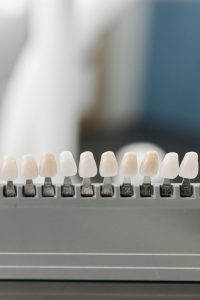Pregnancy is a time of immense joy and anticipation, but it can also come with a host of unexpected challenges, including tooth pain. Tooth pain in pregnancy is a common concern that many expectant mothers face, and understanding its causes, prevention, and treatment is crucial for maintaining both dental and overall health during this critical period. This comprehensive guide will delve into the reasons behind tooth pain during pregnancy, offer practical tips for prevention, and explore safe treatment options to ensure you and your baby stay healthy and comfortable.
Tooth pain in pregnancy can arise due to a variety of factors, primarily stemming from the hormonal changes that occur in a woman’s body. These hormonal fluctuations can lead to increased blood flow to the gums, making them more sensitive and prone to inflammation. This condition, known as pregnancy gingivitis, can cause swollen, tender gums that bleed easily and result in significant discomfort. Additionally, morning sickness and frequent vomiting can expose teeth to stomach acids, leading to dental erosion and subsequent tooth pain.
Moreover, the dietary changes and cravings that many pregnant women experience can contribute to tooth pain in pregnancy. Increased consumption of sugary foods and beverages can heighten the risk of tooth decay, as bacteria in the mouth feed on sugars and produce acids that erode tooth enamel. Ensuring a balanced diet and maintaining proper oral hygiene are essential steps in preventing tooth pain during this period. Regular dental check-ups are also vital, as they help in early detection and management of any dental issues that might arise during pregnancy.
Table of Contents
What Causes Tooth Pain in Pregnancy?
Tooth pain in pregnancy can be attributed to a variety of factors, each related to the unique physiological changes that occur during this time. Understanding these causes is essential for managing and preventing discomfort.
Hormonal Changes
One of the primary causes of tooth pain in pregnancy is hormonal fluctuations. Increased levels of estrogen and progesterone can affect the gums, making them more susceptible to inflammation and bleeding. This condition, known as pregnancy gingivitis, can lead to tender, swollen gums that are prone to pain and discomfort. Hormonal changes also impact saliva production. Reduced saliva flow can lead to dry mouth, which increases the risk of tooth decay and subsequent pain. Saliva plays a crucial role in neutralizing acids and washing away food particles, so any reduction in its flow can negatively affect oral health.
Increased Blood Flow
During pregnancy, blood flow to the gums increases, which can cause them to become more sensitive and prone to bleeding. This heightened sensitivity can make routine dental care practices, such as brushing and flossing, uncomfortable and painful, potentially leading to poor oral hygiene and tooth pain.
Dietary Changes and Cravings
The dietary changes and cravings that accompany pregnancy can also lead to tooth pain. Pregnant women often experience cravings for sugary foods and drinks, which can contribute to tooth decay. Bacteria in the mouth feed on sugars and produce acids that erode tooth enamel, leading to cavities and pain. Additionally, frequent snacking can increase the exposure of teeth to acids and sugars, further heightening the risk of decay and discomfort.
Morning Sickness and Vomiting
Morning sickness and vomiting are common during pregnancy and can significantly affect dental health. Vomiting exposes teeth to stomach acids, which can erode the enamel and cause dental erosion. This erosion can result in tooth sensitivity and pain, particularly when consuming hot, cold, or sweet foods and drinks. It’s important to rinse your mouth with water or a fluoride mouthwash after vomiting to help neutralize the acids and protect your teeth.
Poor Oral Hygiene
Due to the increased sensitivity of gums and potential discomfort, some pregnant women may neglect their oral hygiene routine. Inadequate brushing and flossing can lead to plaque buildup, which exacerbates gum inflammation and increases the risk of tooth decay. Maintaining a consistent and gentle oral hygiene routine is crucial to prevent tooth pain in pregnancy.
Calcium Deficiency
Pregnant women require higher levels of calcium to support the developing fetus. If dietary calcium intake is insufficient, the body may draw calcium from the mother’s bones and teeth, leading to weakened enamel and increased susceptibility to tooth pain in pregnancy. Ensuring adequate calcium intake through diet or supplements can help maintain strong teeth and prevent discomfort.
Pre-existing Dental Conditions
Pre-existing dental conditions, such as untreated cavities or gum disease, can be exacerbated during pregnancy due to hormonal changes and increased sensitivity. These conditions can lead to severe tooth pain in pregnancy if not addressed promptly. Regular dental check-ups and proper oral care before and during pregnancy are essential to manage and mitigate these issues.
Increased Acidity in the Mouth
Pregnancy can sometimes lead to increased acidity in the mouth due to changes in diet and digestion. This heightened acidity can erode tooth enamel, making teeth more vulnerable to decay and pain. Managing diet and maintaining good oral hygiene practices can help neutralize acid levels and reduce the risk of tooth pain in pregnancy.
Common Dental Issues During Pregnancy
Tooth pain in pregnancy often stems from specific dental problems that can be exacerbated by the physiological changes of pregnancy.
Pregnancy Gingivitis
As mentioned earlier, pregnancy gingivitis is a prevalent issue. Symptoms include red, swollen gums that bleed easily, especially during brushing or flossing. If left untreated, pregnancy gingivitis can progress to more severe periodontal disease, which can result in tooth loss.
Tooth Decay
Pregnant women are at an increased risk of tooth decay due to changes in diet and oral hygiene practices. Cravings for sugary foods and beverages, combined with frequent snacking, can contribute to the development of cavities. Additionally, morning sickness and vomiting can expose teeth to stomach acids, which can erode enamel and lead to decay.
Dental Erosion
Dental erosion is the loss of tooth enamel caused by acid exposure. During pregnancy, vomiting from morning sickness can introduce stomach acids to the mouth, which can erode the protective enamel on teeth. This erosion can cause sensitivity and pain, particularly when consuming hot, cold, or sweet foods and drinks.
Preventing Tooth Pain in Pregnancy
Preventing tooth pain in pregnancy requires proactive dental care and attention to oral hygiene practices. Here are some key strategies to maintain oral health during pregnancy.
Maintain a Consistent Oral Hygiene Routine
Regular brushing and flossing are essential to prevent tooth pain and other dental issues during pregnancy. Use a soft-bristled toothbrush and fluoride toothpaste to gently clean your teeth and gums twice a day. Floss daily to remove plaque and food particles from between your teeth.
If you experience sensitivity, consider using a toothpaste designed for sensitive teeth. Additionally, rinsing your mouth with a fluoride mouthwash can help strengthen enamel and reduce the risk of decay.
Watch Your Diet
Diet plays a significant role in oral health, especially during pregnancy. Limit your intake of sugary foods and drinks, which can contribute to tooth decay. Instead, focus on consuming a balanced diet rich in fruits, vegetables, lean proteins, and dairy products. Foods high in calcium, such as milk and cheese, are particularly beneficial for maintaining strong teeth.
If you experience morning sickness, rinse your mouth with water or a fluoride mouthwash after vomiting to help neutralize stomach acids. Avoid brushing your teeth immediately after vomiting, as the enamel may be softened by the acid and more prone to damage.
Visiting the Dentist During Pregnancy
Regular dental check-ups are crucial for preventing and addressing tooth pain in pregnancy. Inform your dentist that you are pregnant so they can tailor their care to your specific needs.
Timing Your Dental Visits
The second trimester is generally considered the safest time for routine dental procedures. By this stage, the risks associated with early pregnancy have decreased, and the physical discomforts of late pregnancy have not yet set in. However, dental care can be provided at any stage of pregnancy if necessary.
Safe Dental Treatments
Many dental treatments are safe during pregnancy, including cleanings, fillings, and X-rays. Your dentist will take necessary precautions to minimize any risks, such as using a lead apron during X-rays to protect your abdomen. Always consult with your healthcare provider before undergoing any dental procedures to ensure they are safe for you and your baby.
Home Remedies for Tooth Pain in Pregnancy
While professional dental care is essential, there are also several home remedies that can help alleviate tooth pain in pregnancy.
Saltwater Rinse
A saltwater rinse is a simple and effective way to reduce inflammation and alleviate tooth pain. Mix one teaspoon of salt in a glass of warm water and rinse your mouth for 30 seconds before spitting it out. Repeat this process several times a day as needed.
Cold Compress

Applying a cold compress to the outside of your cheek can help numb the area and reduce swelling. Wrap a few ice cubes in a cloth or use a cold pack and hold it against the affected area for 15-20 minutes at a time.
Clove Oil
Clove oil has natural analgesic and antibacterial properties that can help relieve tooth pain. Apply a small amount of clove oil to a cotton ball and gently rub it on the affected tooth and gums. Be cautious not to swallow the oil, as it can cause stomach upset.
When to Seek Professional Help
While home remedies can provide temporary relief, it’s important to seek professional help for persistent or severe tooth pain in pregnancy.
Persistent pain
If tooth pain persists despite home care measures, schedule an appointment with your dentist. Persistent pain can indicate a more serious underlying issue, such as an infection or advanced decay, that requires professional treatment.
Signs of infection
Signs of a dental infection include severe pain, swelling, fever, and a bad taste in your mouth. If you experience any of these symptoms, seek immediate dental care. Untreated infections can spread and pose a risk to both you and your baby.
The Importance of Oral Health During Pregnancy
Maintaining oral health during pregnancy is not only important for your own well-being but also for the health of your baby.
Impact on fetal development
Poor oral health has been linked to adverse pregnancy outcomes, including preterm birth and low birth weight. Infections and inflammation in the mouth can release harmful bacteria into the bloodstream, which can reach the placenta and affect fetal development.
Setting a good example
Taking care of your oral health during pregnancy sets a positive example for your child. By establishing good oral hygiene habits, you can help ensure your baby develops healthy teeth and gums from the start.
FAQs About Tooth Pain in Pregnancy
Understanding common questions about tooth pain in pregnancy can help you better manage your dental health during this time.
Can I Get a Dental X-Ray While Pregnant?
Yes, dental X-rays are generally considered safe during pregnancy. Your dentist will use protective measures, such as a lead apron, to minimize any risks. However, it’s always best to inform your dentist about your pregnancy so they can take appropriate precautions.
Is It Safe to Use Painkillers for Tooth Pain in Pregnancy?
Some painkillers, such as acetaminophen (Tylenol), are considered safe for use during pregnancy. However, it’s important to consult with your healthcare provider before taking any medication to ensure it is safe for you and your baby.
How Can I Prevent Tooth Decay During Pregnancy?
To prevent tooth decay, maintain a consistent oral hygiene routine, limit sugary foods and drinks, and visit your dentist regularly. Additionally, avoid brushing your teeth immediately after vomiting and instead rinse your mouth with water or a fluoride mouthwash.
Summary of tooth pain in pregnancy
Tooth pain in pregnancy is a common issue that can be effectively managed with proper care and attention. By understanding the causes, practicing good oral hygiene, and seeking professional help when needed, you can maintain a healthy smile throughout your pregnancy. Remember, taking care of your dental health is an important part of ensuring the overall well-being of both you and your baby.




